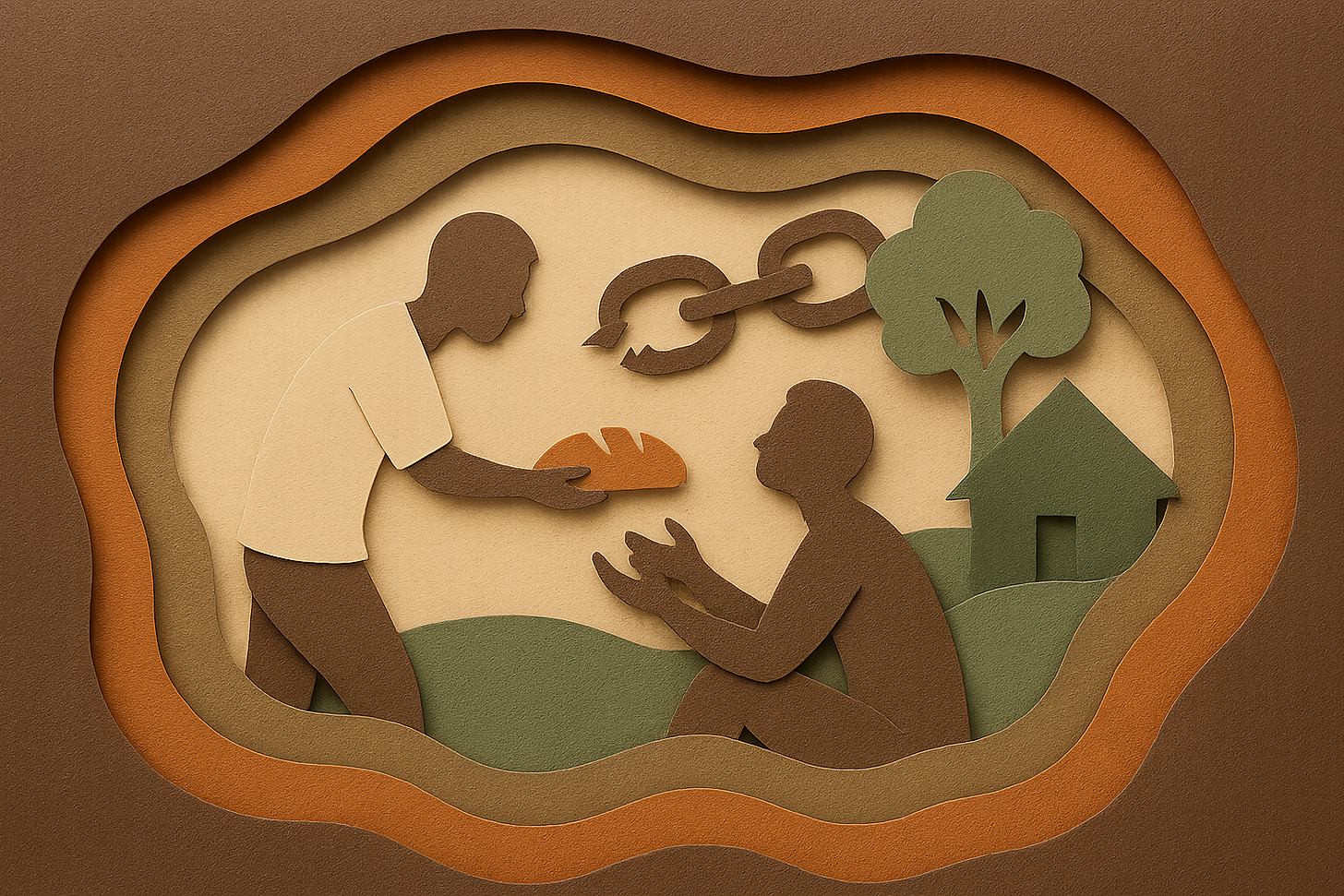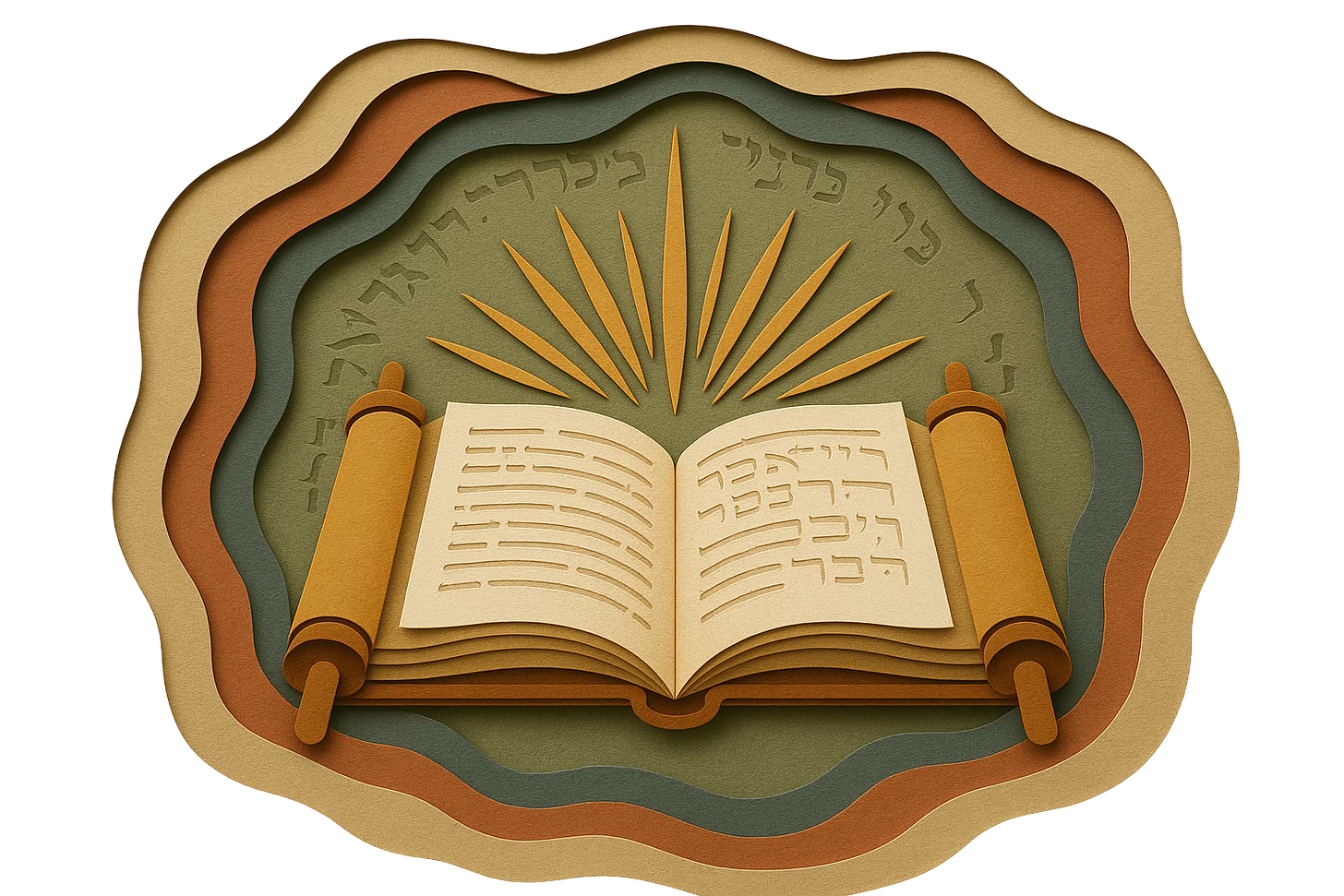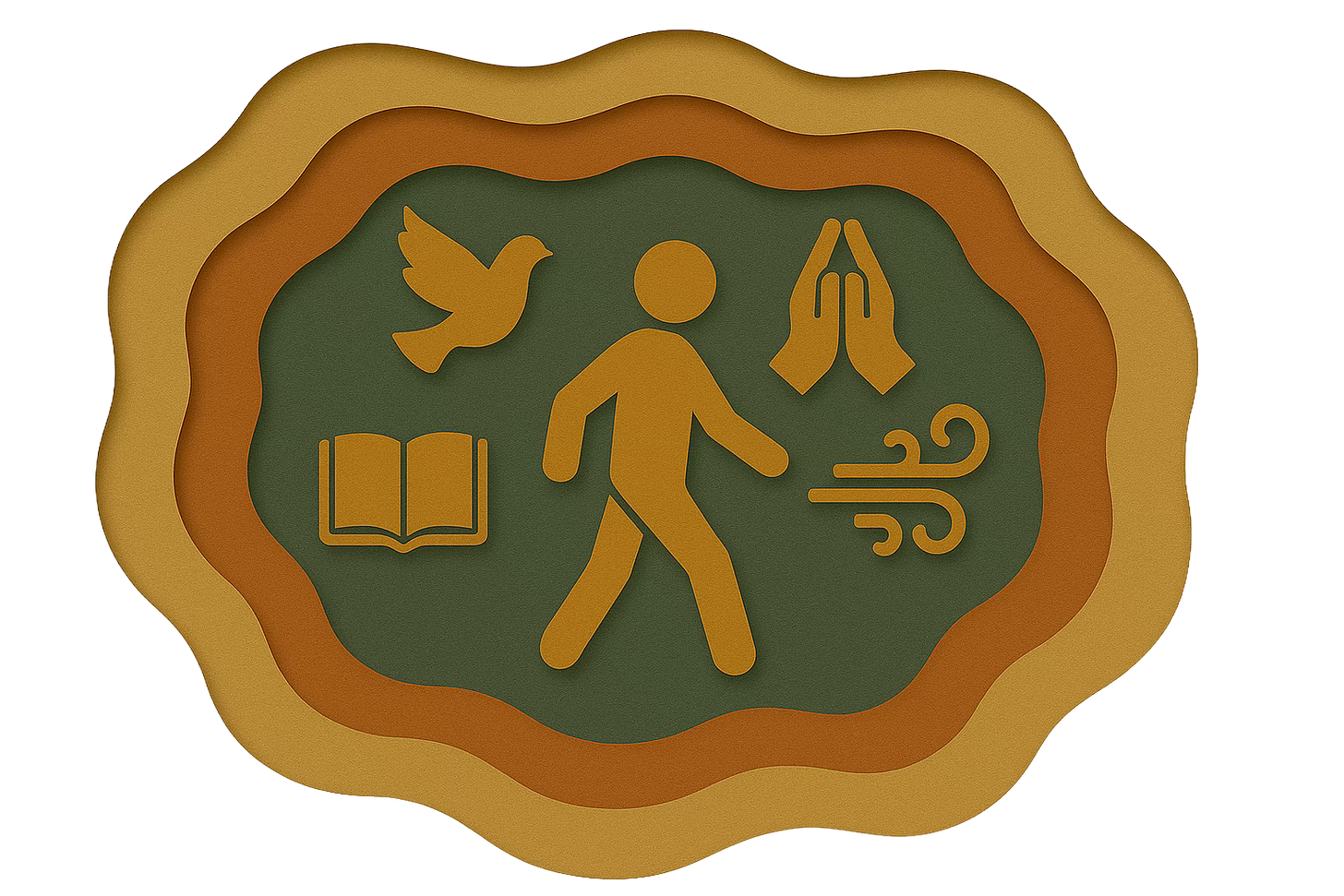Beyond Ritual: Isaiah 58 and the True Fast
Why Fasting Without Mercy Falls Short of Yahweh’s Desire
Beyond Ritual: Isaiah 58 and the True Fast
Weekly Series | Isaiah 58
Why Fasting Without Mercy Falls Short of Yahweh’s Desire
Imagine a city where people gather for a fast—churches hold prayer vigils, some abstain from food, others unplug from media. Yet just blocks away, families sleep in their cars, neighbors wonder where their next meal will come from, and whole communities are weighed down by injustice. Isaiah 58 asks: What is the point of spiritual discipline if it stops at the doors of the sanctuary?
Isaiah’s prophetic voice cuts through every generation’s religious routine, insisting that true fasting means opening our hands and hearts to those in need.
Scripture: The Living Word
Featured Passage:
Key Verses:
“Is not this the fast that I choose: to loose the bonds of wickedness,
to undo the straps of the yoke,
to let the oppressed go free, and to break every yoke?
Is it not to share your bread with the hungry
and bring the homeless poor into your house;
when you see the naked, to cover him,
and not to hide yourself from your own flesh?” (Isaiah 58:6–7)“If you pour yourself out for the hungry
and satisfy the desire of the afflicted,
then shall your light rise in the darkness
and your gloom be as the noonday.” (Isaiah 58:10)
Context: Behind the Words
Isaiah 58 lands in the heart of Jerusalem, directed at the people of Judah during a turbulent and spiritually complicated time. Isaiah was a prophet called to confront not just kings and priests, but an entire society slipping into religious routine while justice was being neglected.
Isaiah’s audience:
The southern kingdom of Judah—centered in Jerusalem, where the temple stood as the visible heart of Israel’s worship.Who was in power:
Isaiah’s ministry spanned the reigns of four kings:Uzziah (a long, mostly stable reign but ending in pride and downfall),
Jotham (faithful but unable to turn the nation fully to Yahweh),
Ahaz (who led Judah into idolatry and political alliances with Assyria), and
Hezekiah (who sought revival but faced Assyrian threats).
These were years marked by prosperity for some, but insecurity and fear for many.
Historical backdrop:
The mighty Assyrian Empire loomed over the region, threatening invasion and exile. Inwardly, society was fracturing—while ritual religion and temple observance were on the rise, everyday life was marked by injustice, poverty, and hypocrisy.Why Isaiah spoke:
Isaiah was not rebuking pagans or foreigners—he was calling out Yahweh’s own people. The temple was busy, the prayer meetings were full, the fasts were frequent. But outside those sacred spaces:Laborers were being exploited.
The poor were ignored.
Those in power bent justice for their own gain.
True worship was being replaced by empty ritual.
Isaiah’s message:
He exposes the disconnect between public piety and private practice. The people wondered why Yahweh didn’t answer their prayers. Isaiah tells them plainly:
“You humble your bodies, but not your hearts. You fast, but ignore the hungry. You pray, but withhold justice. This is not the fast Yahweh chooses.”
Word Study
The Hebrew word for “fast” (צּוֹם – tsom) means more than just going without food; at its root, it’s about self-humbling, repentance, and seeking Yahweh’s heart.
The word for “yoke” (מוֹטָה – motah) evokes the image of a heavy, wooden bar used to bind and control—symbolizing both literal oppression and unjust systems.
“Share your bread” (paros lechem in Hebrew) is intensely practical: breaking what you have and placing it in the hands of another.
Isaiah’s audience practiced all the outward signs of devotion, but their worship ended at the temple doors. Through Isaiah, Yahweh declares that true faith must overflow into justice, mercy, and a willingness to bear the burdens of others.
Covenant: The Relational Core
Isaiah 58 is not just a social manifesto—it’s a call back to covenant faithfulness. The prophet reminds Judah that Yahweh never separated worship from justice, or ritual from righteousness. At the heart of the covenant is a relationship that transforms not only the individual, but the entire community.
Covenant always included justice:
From Abraham onward, Israel was called to be a blessing to the nations—a people marked by mercy, compassion, and justice for the vulnerable.The Torah repeats the call: care for the widow, orphan, foreigner, and poor (Deuteronomy 24:17–22; Exodus 22:21–27).
Sacrifices and festivals were always meant to flow into love of neighbor and acts of generosity.
Isaiah’s confrontation:
He exposes how Judah’s faith had become self-contained—content with ceremonies, while neglecting those Yahweh loves.The sign of true covenant wasn’t perfect rituals, but a people whose worship spilled over into real compassion, equity, and mercy.
The fast Yahweh desires is a life that undoes yokes, feeds the hungry, welcomes the outcast, and shelters the poor.
Yeshua and covenant fulfillment:
Isaiah’s vision finds its echo in Yeshua the Messiah:Yeshua fed the hungry, healed the sick, and set the oppressed free.
He warned the religious: “You tithe and fast, but neglect justice, mercy, and faithfulness—these you ought to have done” (Matthew 23:23).
He declared, “Whatever you did for one of the least of these…you did for Me” (Matthew 25:40).
Today’s call:
The true covenant community is known not just for worship services or statements of faith, but for practical acts of mercy, hospitality, and justice.
Isaiah 58 draws a dividing line:Worship that stops at the sanctuary is incomplete.
Worship that moves toward the margins is the fast Yahweh chooses.
Practice: Living It Out
Isaiah 58 demands that faith leave the sanctuary and take root in the streets, homes, and neighborhoods where real needs exist. The prophet’s call is not just ancient wisdom, but a living challenge for every faith community today.
True fasting is never just personal.
Yahweh’s chosen fast always involves reaching beyond comfort and ritual, stepping into the lives of the hurting, overlooked, and oppressed.This is not about charity alone, but solidarity:
It’s about sharing life—breaking bread together, bearing one another’s burdens, refusing to “hide from your own flesh.”
Modern Example
Picture a large congregation in a thriving city. Every January, they begin the year with a church-wide fast. Social media fills with posts about what people are “giving up” and what they hope to receive from God. Worship services are packed, and the prayers are fervent.
But outside the church walls, in the same zip code, families are living in shelters or sleeping in cars. Some members, convicted by Isaiah 58, begin to ask: What if our fast wasn’t just about us? They organize meal trains, invite unhoused neighbors to their tables, and work with local organizations to help families move from hotels to homes. Sunday school classes visit the county jail, bringing encouragement and practical help to those inside. Slowly, the fast shifts from private piety to public mercy. The church becomes known not just for what it abstains from, but for what it gives—and whom it welcomes.
Key Takeaways
Fasting, prayer, and worship are only pleasing to Yahweh when they overflow into justice, mercy, and generosity.
The test of spiritual vitality is not the intensity of our rituals, but the depth of our compassion and the breadth of our hospitality.
When the church “pours itself out for the hungry,” Isaiah’s promise rings true: “Your light will rise in the darkness, and your gloom will become like noonday.”
Discussion Questions
In what ways does our spiritual practice risk becoming self-focused or disconnected from the needs around us?
What “yokes” of oppression or burdens are present in our city, and how can we help break them?
How can our church or community make its fast—the way we seek God—visible through tangible acts of justice and mercy?
Seven-Day Practice Rhythm
Isaiah 58 becomes real when spiritual practice is woven into daily life—reflecting, serving, and seeking Yahweh together.
Closing Blessing
May Yahweh open your eyes to see every image-bearer as your own flesh,
your hands to break bread and burdens,
your heart to pour itself out for the hungry and afflicted.
May your fast bring light to dark places,
justice where there is oppression,
and shalom where there is brokenness.
May your worship overflow the sanctuary
and fill the streets with the goodness, mercy, and healing of Yahweh Himself.
Amen.






